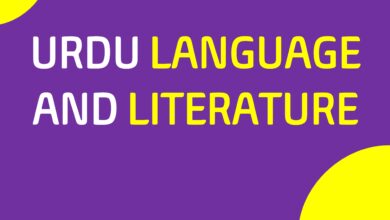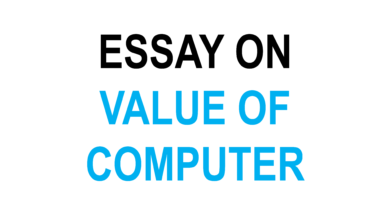Essay On Democracy In English 1000 Words

Essay On Democracy
Democracy is a Greek phrase that means “people and their rules,” and in this context, people have the ability to choose the government that they want to rule them. Greece was the world’s first democratic nation. India is a democratic nation where citizens are free to choose the government they want and the jobs they want to do. Direct and representative democracy and hybrid or semi-direct democracy are the two types of democracy. Decisions are made on a variety of issues in democracies. People have access to a few rights that are crucial for happy human existence.
Pakistan was founded in 1947 with democracy as its guiding principle. Among Islamic democracies in the Muslim world, Pakistan is regarded as being the biggest. Democracy’s most unique feature is that its citizens may actively participate in choosing their government’s leaders. The instability of Pakistan has caused the democracy in Pakistan to fluctuate over time, whether under military or civilian rule. While many nations around the world practice democracy, Pakistan does so in a unique way.
Democracies have faced countless obstacles over the years, some more recent than others. A few examples include caste discrimination, small-time corruption, and localities favoring particular political parties owing to majority populations. If we don’t act now, who knows what may happen? Democratic regimes are governed by the will of the people, and in general, their voices are heard.
By electing their leaders, it enables the general population to enact laws and public policies. The democratic system can result in instability when leaders shift in response to public opinion and the results of elections. Morality is not allowed because the focus is on political rivalry and power.
This is due to Pakistanis’ lack of familiarity with how true democracies operate. This issue also has the potential to negatively impact Pakistan’s future. Additionally, a problematic political culture and legal diversity present another unsettling vision of the future.
There are numerous sects in Pakistan, each of which has its own set of guidelines. These various beliefs have made political revolution possible. When awareness is the key to solving any country issues, knowledge can lead to improvements. Pakistan’s democracy system has allowed it to thrive. It is an undeniable fact that democratic organizations in Pakistan have suffered numerous defeats. It has been discovered that political parties themselves violate the law and participate in the cycle of fraud, money laundering, and other unethical practices.
Pakistanis are resilient enough to handle the numerous disasters that come their way. Even after becoming a democratic nation, the military still has a strong influence. If we look at democracy in Pakistan from a deeply rooted perspective, it is the actions that legislators take to further their own interests. Political parties have long prioritized their own advancement over that of the ruling class of the nation. Democracy in this nation has up until now been viewed as the process by which one Democratic Party cedes power to another. Surprisingly, the 2018 elections demonstrate victory as the longest stretch of democracy without a military takeover.
Pakistan Democratic History
The population of Pakistan is among the most diversified in the world, representing all social and economic classes. The lengthy history of the nation has produced a wide range of political structures and philosophies. Since 1973, democracy has been the stated policy of the government; nevertheless, Pakistan had previously experienced a number of different kinds of administration. During the British Raj, the first democratic system was founded when elected members from each province met to form a legislative assembly and draught a constitution. But only four years after it was founded, the British government disbanded this legislature. After independence in 1947, a second attempt at building democracy was made. However, democracy was not fully established until 1973 as a result of disagreements between Prime Ministers and Presidents.
Since then, many constitutional changes have been passed by succeeding administrations in an effort to increase citizens’ rights and create a more democratic system. Democracy has a lengthy and turbulent history in Pakistan. In 1979, the nation’s first democratic elections were held. But there have been numerous instances of military rule in the nation, which were followed by democratic times.
Principal of Democracy:
There are five principles: republicanism, socialism, sovereignty, democracy, and secularism. Political parties adhering to these ideals will run for office. The needy people who need food, money, and shelter will receive countless bribes in exchange for their votes for the candidates of their choice. However, we may assert that India’s democracy continues to be superior to that of other nations.
Democracy is essential for the development and improved operation of every nation’s government. In certain nations, freedom of speech, freedom of the press, and freedom of political expression are all seen as essential to ensuring that voters are well-informed and able to cast their ballots by their own interests.
In a democratic system of government, the people own the ultimate authority and can exercise it either directly or indirectly through a system of representation that often includes regular free elections. Citizens should be informed so they can choose the best candidate for the ruling government since it allows them to participate in the creation of laws and public policies by electing their leaders. Additionally, there are certain issues with democracy. In democracies, presidents frequently change based on popular opinion and vote totals, which creates instability. There is no room for morality because politics is all about power and political rivalry.
Democratic nations are positively changing the world, but this transformation also occurs when people are well-informed and have a high literacy rate. When a government considers its citizens and how they see its decisions. Many people believed that Pakistan’s future was uncertain due to its political situation and its uninformed democratic laws. The Pakistani people have high aspirations for the present leadership, but the economy isn’t looking bright for at least the next five years.




